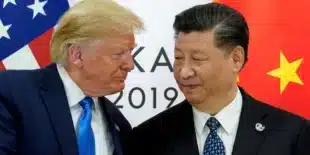India has accused Samsung and Xiaomi of collaborating with e-commerce giants Amazon and Flipkart to bypass the country’s regulations, according to a government report. The accusation is part of a broader effort by India to crack down on foreign companies in the retail sector, as reported by Reuters.
The Competition Commission of India (CCI) issued a detailed report—1,027 pages in Amazon’s case—stating that the Indian divisions of companies like Samsung, Xiaomi, Motorola, Realme, and OnePlus were involved in “exclusive” phone launches in collaboration with Amazon, which violates competition laws. Similarly, the CCI’s 1,696-page report on Flipkart mentioned that the Indian units of Samsung, Xiaomi, Motorola, Vivo, Lenovo, and Realme engaged in similar practices.
Rajeev Chandrasekhar, India’s Minister of State for Electronics and Information Technology, emphasized that the government is dedicated to maintaining a fair marketplace and will not allow regulatory violations. He noted that this action is aimed at protecting local businesses and consumers from the unfair practices of large foreign corporations.
Chandrasekhar stated, “We will thoroughly investigate these allegations. Our goal is to protect Indian businesses and ensure adherence to all regulations.”
These accusations have raised concerns within the retail sector, as many fear that increased restrictions could disrupt their operations.
India’s e-commerce sector has faced heightened scrutiny, especially as the government pushes for self-reliance and the promotion of local brands. The Indian government has been actively supporting the growth of domestic companies and has implemented measures to reduce foreign dominance.
Xiaomi, in response to the allegations, denied any wrongdoing and affirmed that it operates within Indian laws. Samsung has yet to comment publicly. This situation has sparked debates about the potential impact on foreign investment in India, a country that is eager to attract global companies.
Industry experts warn that ongoing scrutiny of foreign firms could lead to tighter regulations, potentially affecting consumer options and market competition. As the situation develops, there is widespread interest in how it will reshape India’s retail sector.
In the wake of these allegations, many stakeholders are calling for a balanced approach that supports both local businesses and foreign investments. They argue that cooperation, rather than conflict, is key to fostering a healthy market environment.
While the investigation’s outcome remains uncertain, the government’s actions demonstrate its commitment to enforcing regulations and protecting domestic interests. The resolution of this issue could have significant implications for all parties involved as India’s retail industry continues to evolve.


